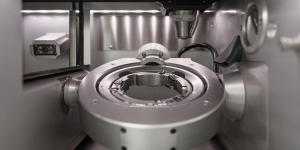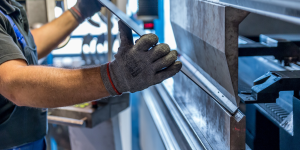Quality manufacturing is based on the accuracy and precision of products. This is especially applicable in the field of CNC (Computer Numerical Control) machine production where even minor variations can have major consequences. Accuracy is one of the most crucial aspects in CNC machine production and this post will focus on five reasons why it should be considered a vital aspect for manufacturing processes.
Accuracy is what one would expect in CNC machine production
Precision is one of the vital aspects to be considered when it comes to CNC machine production since accuracy ensures quality and precision that leads to manufacturing products. The complexity of CNC machines requires a high level of detail orientation as any small deviation may result in expensive mistakes and waste. From precision components to massive production, the importance of accuracy can never be overemphasized. Maintaining tolerance and accuracy is critical in ensuring design specifications are met, end products function as intended, but also that they remain reliable. In addition, accuracy in CNC machine production directly influences the overall efficiency of production since it minimizes waste and rework while making manufacturing operations more competitive.

What does accuracy have to do with product quality and performance?
Accuracy in CNC machine production is an aspect that cannot be overemphasized on the quality of product performance. Measurements and specifications must be precise because even minor deviations can result in costly mistakes, which are also very wasteful. Whether it is small-scale components or large-scale production, maintaining accurate measurements and tolerances plays a crucial role in meeting design specifications and ensuring the performance of end products. Additionally, accuracy has a direct effect on overall production efficiency and leads to zero waste in terms of waste elimination as well as minimizing rework hence increasing manufacturing competitiveness. The three outcomes of the accuracy in CNC machine production include consistency with regard to product quality, compliance with standards and regulations within an industry as well as enhanced safety during manufacturing processes.
What is the impact of inaccurate production by CNC machines?
The effects of inaccurate CNC machine production are far-reaching and can disrupt the entire supply chain, impacting product quality, operational efficiency, and ultimately profitability. The slightest deviation from prescribed measurements and tolerances is likely to cause expensive mistakes, rework, and wastage of resources. The consequences of inaccuracy go beyond the current production phase and can influence functionality, reliability as well as compliance with standards. In addition, inaccurate CNC machine production impacts overall manufacturing productivity; it also affects the competitiveness of operations and creates potential safety issues within the manufacturing environment.
What can be done to ensure precision in CNC machine production?
Accuracy in CNC machine production is a matter that needs to be addressed comprehensively because there are several measures and best practices involved. To begin with, CNC machines need regular maintenance and calibration to ensure accuracy in production. This entails regular checks and corrections to ensure that the machines run within acceptable tolerances. Moreover, purchasing sophisticated metrology instruments and technologies may help confirm the accuracy of machined parts and detect deviations. In addition, enforcing rigorous quality control standards and comprehensive inspection procedures across the production process can help detect errors early on to prevent their amplification. Additionally, continuous training and skill enhancement for machine operators as well as technicians is essential in maintaining accuracy standards while creating a culture of precision within the manufacturing setting.
What is the role of accuracy in CNC machine production to overall business success?
The accuracy of the CNC machine is a critical factor in contributing to general business performance. Product quality, operational efficiency, and ultimately the bottom line are all directly affected by accurate CNC machining. By meeting close tolerances and specifications, CNC machine production guarantees fitment as well as functionality to reduce the possibility of defects or rework. This, in return, improves the overall dependability and lifespan of the final products. Furthermore, the precision of CNC machine production reduces the cost of production and maintains goodwill for a company as well as ensures customer satisfaction. Moreover, it sets the company to meet industry standards and requirements which will give a competitive advantage in the market.

Conclusion
The importance of accuracy in CNC machine production cannot be overemphasized. The echoes of the effects that precision machining has can be heard from meeting strict specifications to product quality and reliability throughout all levels of manufacturing. With a focus on accuracy, businesses not only improve their operational standards but also position themselves for long-term success in an ever-changing competitive market. Consequently, investing in accuracy is no longer a choice but an obligation for any firm that wants to be associated with high standards of CNC machine production.
